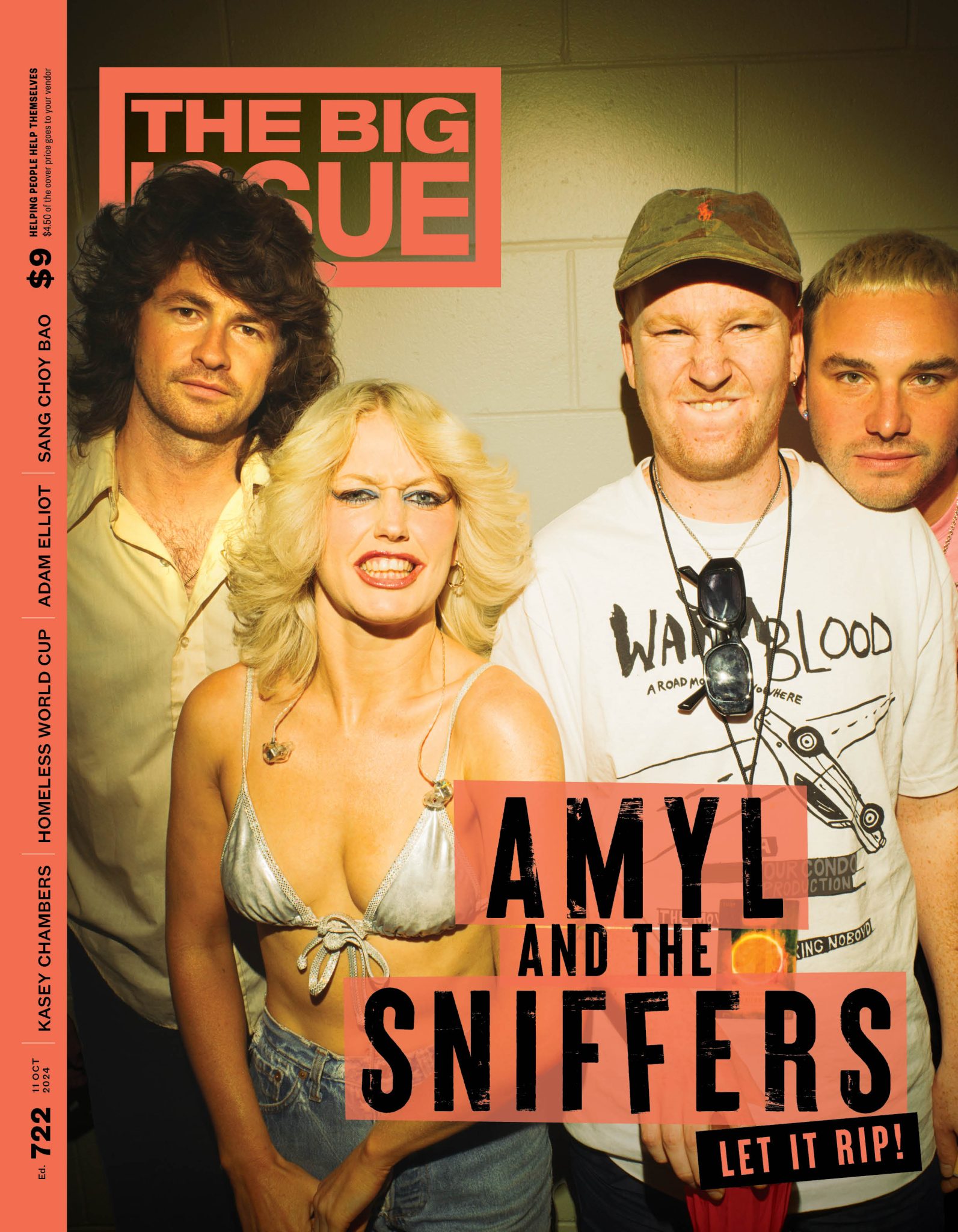Dr Jo Skinner knows the medical benefits of physical contact. In a COVID world, she finds ways to bring comfort to her patients who are missing that connection.
On Monday, I go on one of my regular home visits to a woman in her fifties. She is palliative now and too anxious to attend appointments at the surgery. Her anxiety in this pandemic era is well placed. She is all jutting bones, hollow cavities and tissue paper skin. She needs more pain medications. It is something I could arrange over the phone, but she wants to see me.
We sit side by side on her front verandah. The light and shade dapple through the leaves, the hum of traffic is soft in the distance, a magpie warbles noisily on the fence. I measure her blood pressure, even though the numbers are unimportant now. It gives me a reason to touch her. She has in the past been aloof, reserved. I keep my hand on hers and her pulse rate slows. She was never one for conversation but now that her time is finite she wants to share, so I stay longer and listen.
An hour passes. I glimpse the cigarettes hidden under the cushion and want to reassure her that it is okay, but instead just pretend I don’t see them. I realise I have not let go of her hand and give it a squeeze. She never married, has no children. She asks when I will come again.
One of the awful things of the pandemic has been the drop in human connectedness. Not the screen interactions that have flourished with social distancing, but real skin-to-skin contact: hugs, a held hand, the sharing of physical touch to communicate love and reassurance. While I support the measures used to limit the spread of the virus, this separation from others has lasting impacts on mental health, physical wellbeing and even immune function.
Our tactile sensory systems develop very early in utero, and we spend the first months of our lives in constant reassuring contact with our mothers. This hunger for connection continues throughout our lives.
Positive touch stimulates our vagal nervous system which leads to a drop in blood pressure, a reduction in heart rate. Regular healthy skin stimulation results in reduced production of cortisol and a rise in serotonin. This improves mood, reduces pain and has a positive impact on wellbeing.
Later, I do another regular visit to a 95-year-old woman, a former model. She always demanded a hug before we launched into a consultation. She is now confined in a nursing home, her cognitive function in steep decline. She still sports a pink streak in her hair, applies a slash of lipstick, and wears a string of pearls in bed. During the lockdown, when her daughters were not allowed to visit, a wise nurse gave her a doll. She strokes its hair, holds her close. Caring for the doll has reduced her loud agitation, and improved her sleep without the need to add medications. It has answered that primal need to express love through physical contact, even when it is not reciprocated.
I sit down and hold her knotted fingers with their rings trapped behind arthritic nodules. She smiles, reaches out for a one-armed hug, her tactile memory left unscathed by Alzheimer’s. Dolly stays firmly tucked under her other arm.
Since lockdown, the shape of my daily work in general practice has changed. We no longer see anyone with respiratory symptoms or fevers inside the surgery, but down in the car park wearing full PPE. The benefit of this is that patients presenting to the rooms are unlikely to be positive for COVID-19, providing a safe bubble where we can touch patients without the barrier of protective gear.
On one memorable day, I saw one of my regulars, a woman who lives alone and struggles with a long history of severe anxiety and depression. After a long absence, she presented at the surgery, head bowed. When I shut the door she whispered, “I know it is against the rules, but can I give you a hug?”
She held on to me so long, I thought she might never let go. I was the first person she had touched in nearly seven months. With her permission, I contacted some of her friends and family to ensure she had regular contact with another human being.
To touch one another is fundamental to our humanity. There is a reason that the photograph of 85-year-old Rosa being hugged for the first time in five months won World Press Photo of the Year. That evocative embrace responds to our inbuilt desire for inclusion, love, empathy and reassurance, particularly while in the grip of a pandemic.
I find myself at the beginning of another week, another Monday. I ring my palliative lady, give her an opportunity to hide her cigarettes.
I settle beside her again, check her pulse, keep my hand on hers, determined her final weeks will not be spent untouched and alone.
Jo Skinner is a Brisbane-based GP who writes essays and fiction.
This article first appeared in The Big Issue Ed#646.
